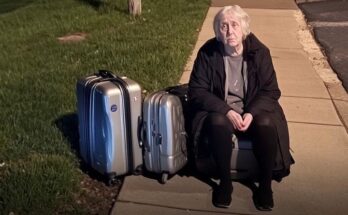Dogs are more than just pets—they are protectors, rescuers, and loyal companions who selflessly stand by us. Yet, in our everyday lives, the very presence of dogs is often limited, met with restrictions, and even rejected. “I can’t take him to the beach for a walk because it bothers you during your vacation,” the writer notes, reflecting an experience many dog owners face. While dogs are welcome when we’re in distress, their everyday presence is seen by some as a nuisance.
The irony is striking. Dogs are often unwelcome in public spaces: we face limits on renting homes if we have a pet, and public transportation is often off-limits to dogs. Yet when danger strikes—a natural disaster, a search-and-rescue mission in a forest, a snow-covered mountain, or the ocean during a riptide—the same society that restricts them suddenly relies on their loyalty, their bravery, and their extraordinary skills. In times of emergency, dogs are summoned to save lives, no questions asked.
Take the recent example of search-and-rescue dogs during natural disasters. When earthquakes strike, rescue dogs are among the first responders, risking their own safety to find survivors buried in rubble. Dogs have saved countless lives in forest searches, navigating dense and treacherous terrain to locate lost hikers. On snowy mountainsides, trained avalanche dogs work tirelessly to find those who have strayed off-piste, often endangering themselves in harsh, frigid conditions. In each scenario, these dogs demonstrate unwavering commitment—without judgment, hesitation, or prejudice.
So why, then, are these heroic animals treated as mere inconveniences in our daily lives? When not called upon to perform miraculous acts, dogs and their owners still face significant barriers. Many public beaches, parks, and hotels maintain strict “no dogs allowed” policies, discouraging even the most responsible pet owners. In public transport systems, restrictions and fees make it hard for people to travel with their pets, limiting both their mobility and sense of inclusion.
Yet in times of need, when human lives hang in the balance, these same dogs are welcomed, even celebrated, as heroes. They are the “first responders” who neither judge nor abandon. Their service is a testament to their nature: dogs are, and have always been, our most loyal companions. They respond to distress calls with urgency, guided by an instinctive compassion that defies our often self-imposed boundaries.
The closing words of this tribute ring true: “He’s just a dog… but he will find you.” This dedication serves as a reminder to those who don’t love or appreciate dogs. These animals aren’t just companions—they are silent guardians, selfless heroes, and devoted friends. Perhaps it’s time to reconsider how we view our four-legged friends, not only in times of disaster but in everyday life, where their loyalty and love are just as present.
Dedicated to all those who don’t love dogs—but who, one day, may find themselves thanking them.



